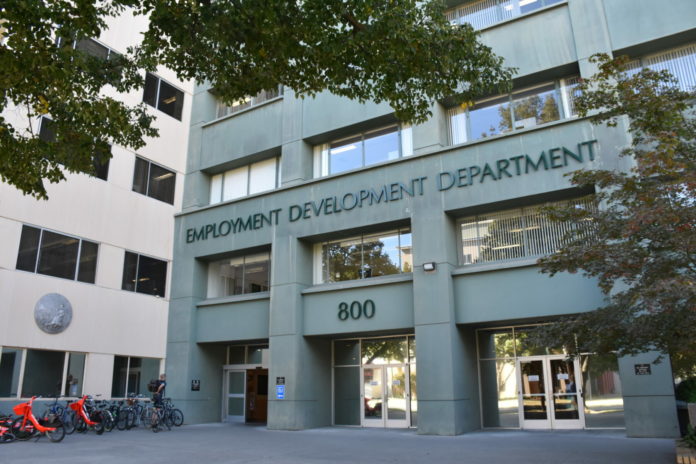Los Angeles County’s unemployment rate edged up a notch to 5.3% in June from 5.2% in May as more people entered the labor force looking for work, according to state figures released last week.
Yet the figures from the state Employment Development Department also showed employers throughout the county added another 9,500 jobs in June as more people resumed normal activities despite the pandemic.
On the unemployment front, the slight increase of 0.1 percentage point was largely the result of a 17,000 increase in the number of Los Angeles County residents in the labor force to 5.07 million as more people came off the sidelines to seek work. The number of unemployed also jumped by 7,000 people in large part due to the end of school employment contracts tied to the end of the academic year.
Even with the slight increase in the unemployment rate, that rate was still at the lowest level since the pandemic hit in March 2020 and was a significant improvement over the 9.7% rate recorded in June of last year. It was a huge improvement from the extraordinarily high 17.6% unemployment rate in June 2020 as the economy was still in the grip of the initial lockdown phase of the pandemic.
Yet L.A. County’s unemployment rate continued to lag behind the downward progress statewide, where the rate stood at 4.2% in June. And it was substantially higher than the national unemployment rate of 3.6%.
The EDD also released a breakdown of unemployment rates for cities within the county; those rates differ from the countywide average because they are not adjusted for seasonal factors like holiday hiring. The two largest cities, Los Angeles and Long Beach, each posted seasonally unadjusted rates of 5.3% in June.
Among cities with at least 10,000 people in the labor force, Lancaster and Palmdale tied for the highest June unemployment rate at 7.7%, while Lomita had the lowest at 2.4%. Among other cities in the San Fernando and Santa Clarita valleys with workforces exceeding 10,000 people, Calabasas posted an unemployment rate in June of 6.8%, followed closely by Burbank at 6.7%. Glendale and Santa Clarita had the lowest rates at 4.9% and 5.1% respectively.
Meanwhile, employers in L.A. County reported a net 9,500 more jobs on their payrolls in June than in May, roughly the same increase as the one recorded between April and May.
With this job gain, the county has now gained back roughly 679,000 – or 86% – of the 785,000 payroll jobs lost during the first pandemic lockdown in the spring of 2020. But it still leaves the county about 106,000 payroll jobs short of the pre-pandemic peak of 4.62 million reached in February 2020.
The EDD also released a seasonally adjusted set of payroll jobs figures showing a gain of about 9,000 jobs in June.
Leading the payroll job gains in June was the accommodation/food services sector with a jump of 5,100 jobs. Restaurants and bars comprised the majority of that gain, adding a net 4,000 payroll jobs. This sector was the hardest hit during the pandemic lockdown, so it has consistently been among the largest job gainers as the economy has reopened.
Retail trade was the next gainer with 4,700 jobs added to payrolls in June. The construction sector added about 1,700 jobs, followed by the business/professional services sector, which added 1,300 jobs to payrolls. The motion picture/sound recording industry added a modest 600 jobs in June.
Not surprisingly given the end of the academic year, the education sector was the only one to post a drop in jobs. Private educational services lost a net 6,900 jobs, while K-12 public education and state universities lost a net 2,000 jobs.
Since June of last year, the county added a net 237,000 jobs, for a gain of 5.5%. Every significant sector of the Los Angles economy shared in that gain, led by a net increase of 44,600 jobs in accommodation/food services.
Other significant payroll job gainers during that 12-month period included professional/business services, which added a net 36,600 jobs and motion picture/sound recording, up about 28,600 jobs. The private education and health care/social assistance sectors each gained about 18,000 jobs during that 12-month period.
